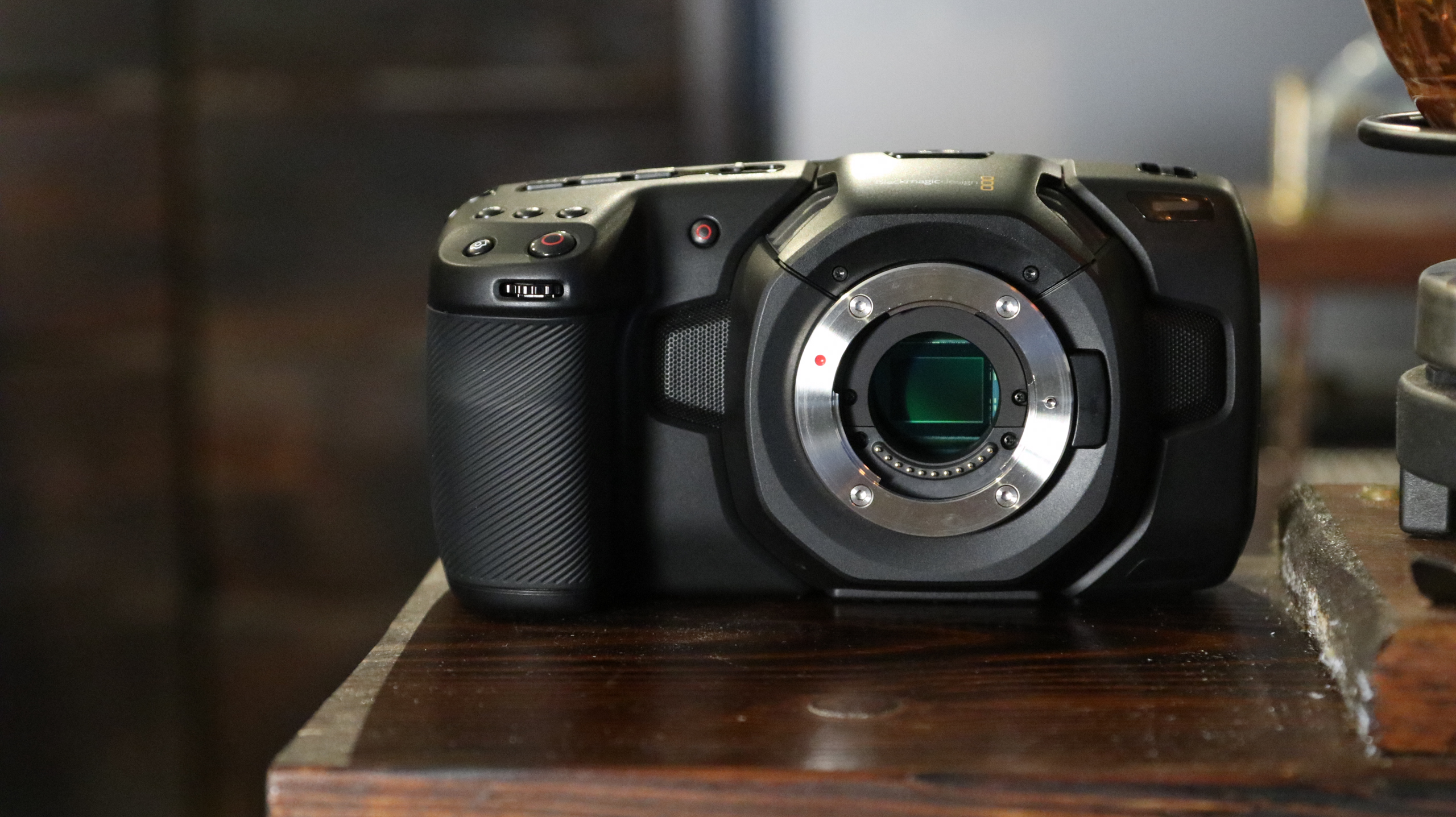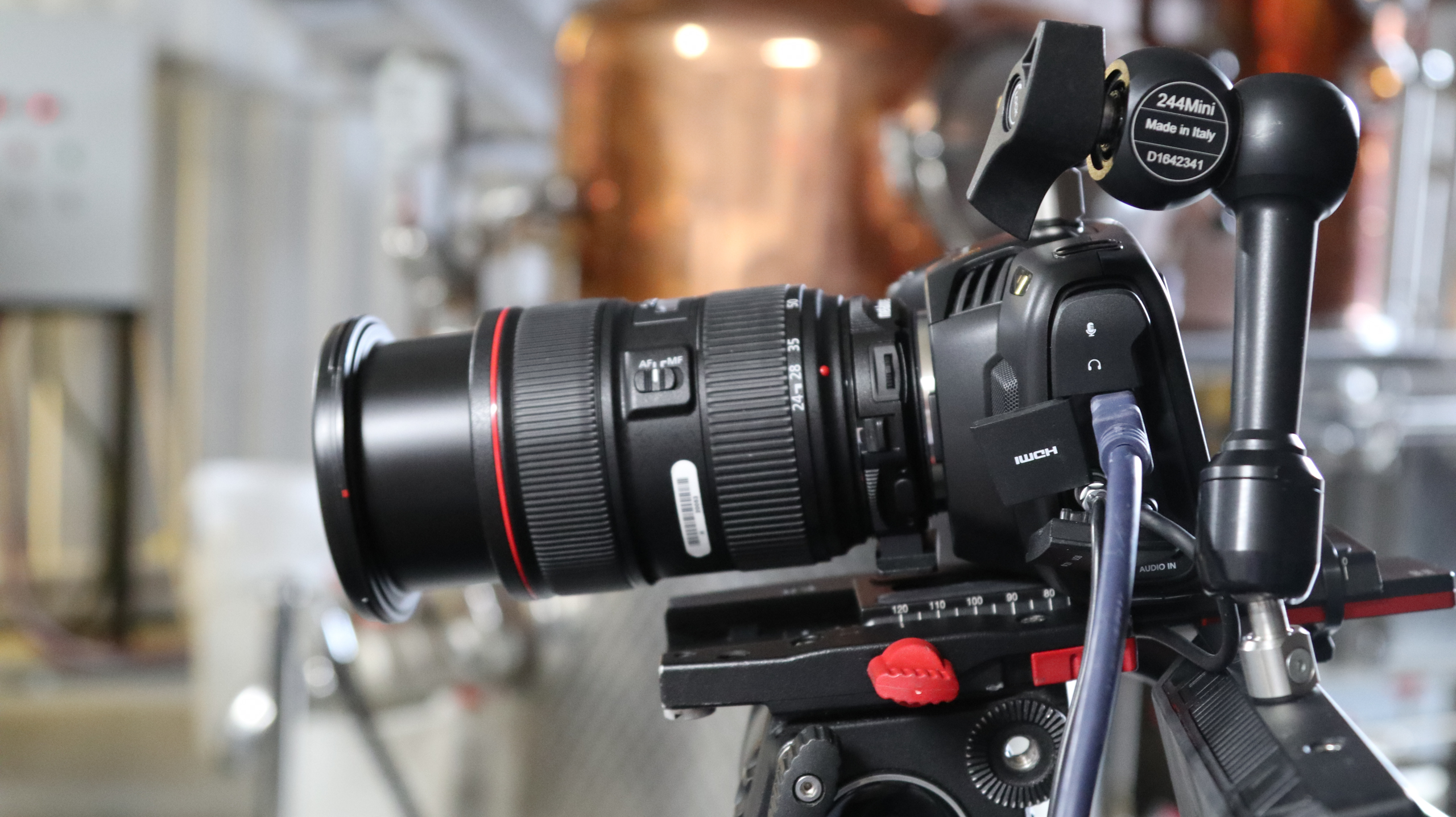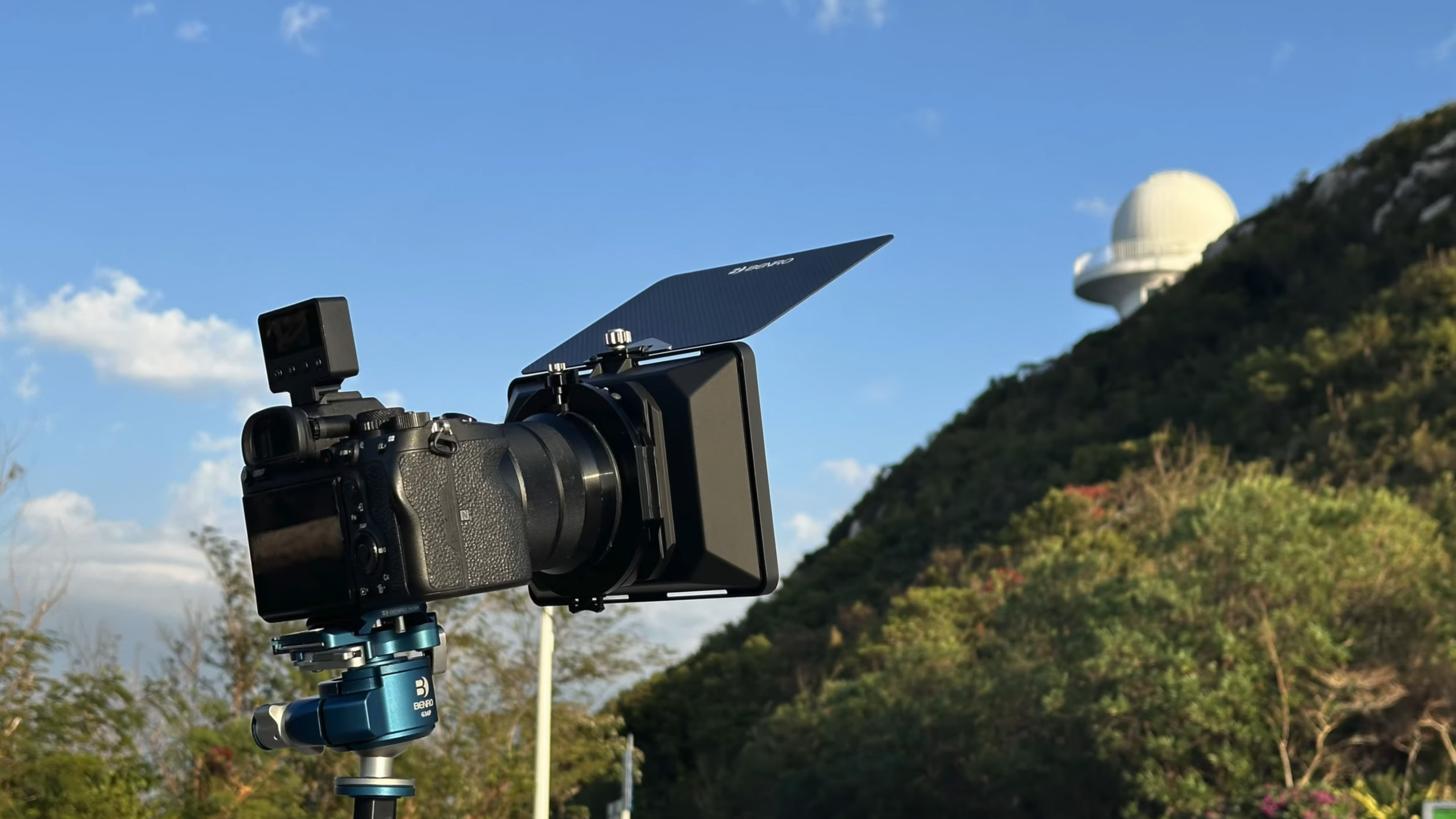Is a DSLR or mirrorless cinema camera better for videography?
Getting a good video camera might not be as difficult and expensive as you would imagine
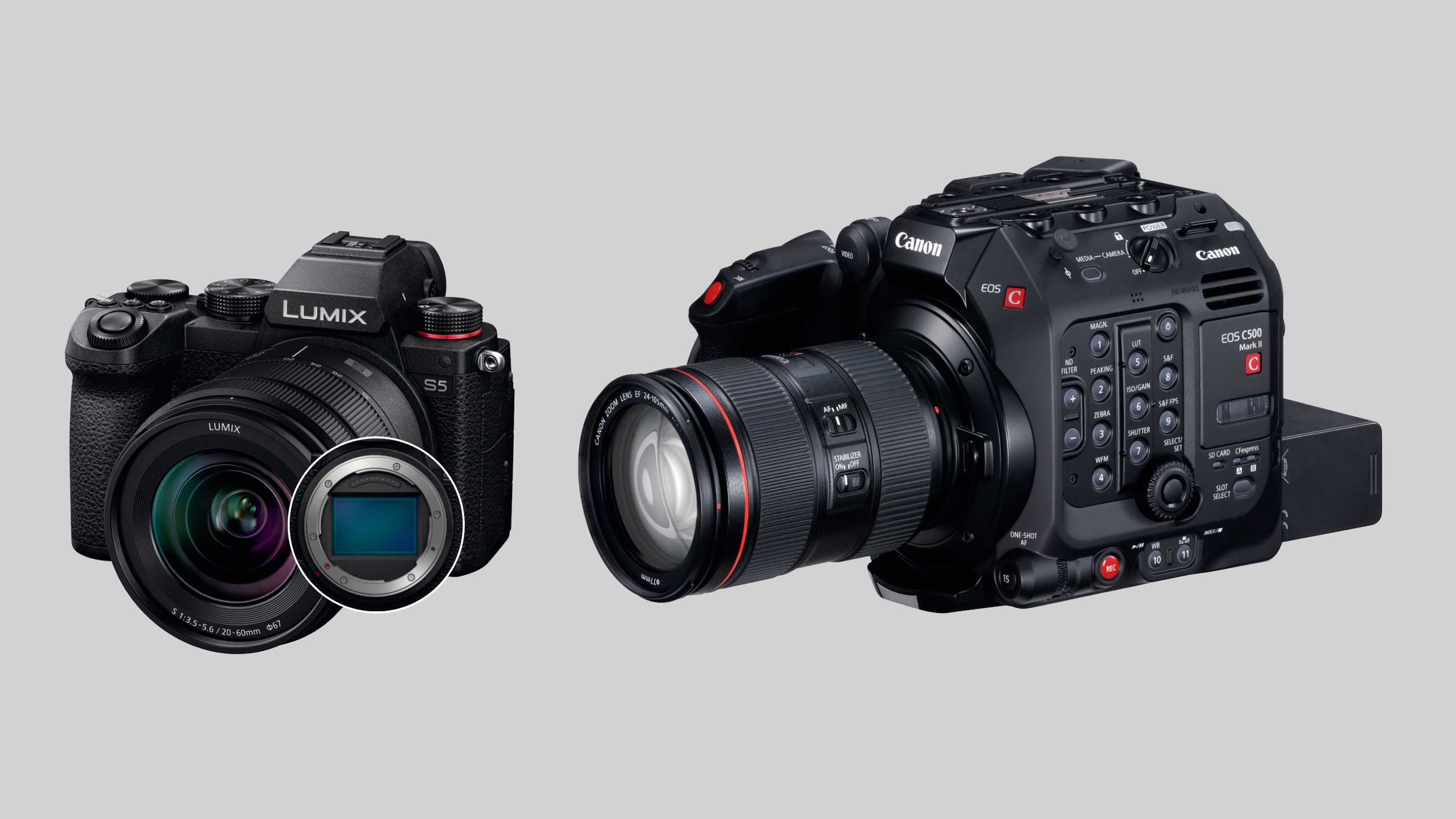
At one time the only cameras used to shoot high-end, professional motion content were large, heavy and expensive dedicated cinema models. Travel back in time by a couple of decades and the thought of being able to shoot pro-level footage on a camera you can carry in a coat pocket would have been laughable.
The more information within a file, the more it can be edited (colour graded in video terminology). While many cameras shoot 8-bit video, pro models shoot 10-bit, which combined with log modes (flat, low contrast profiles with great detail capture) provides the basis for advanced video post-processing.
This is likely one of the reasons many photographers, who are used to shooting with full-frame cameras and APS-C models in the digital age, assume video is still a foolishly expensive endeavor.
The best cinema cameras certainly help you to capture high-end professional video work, but as they are highly specialized they come with a price tag to match. It's fair to say that incredible results are now possible from the latest crop of the best mirrorless cameras and the best DSLRs too. Even camera phones are capable of outstanding quality, meaning you have a huge range of tools to capture the story you want to tell. Let's look at the advantages of both options...
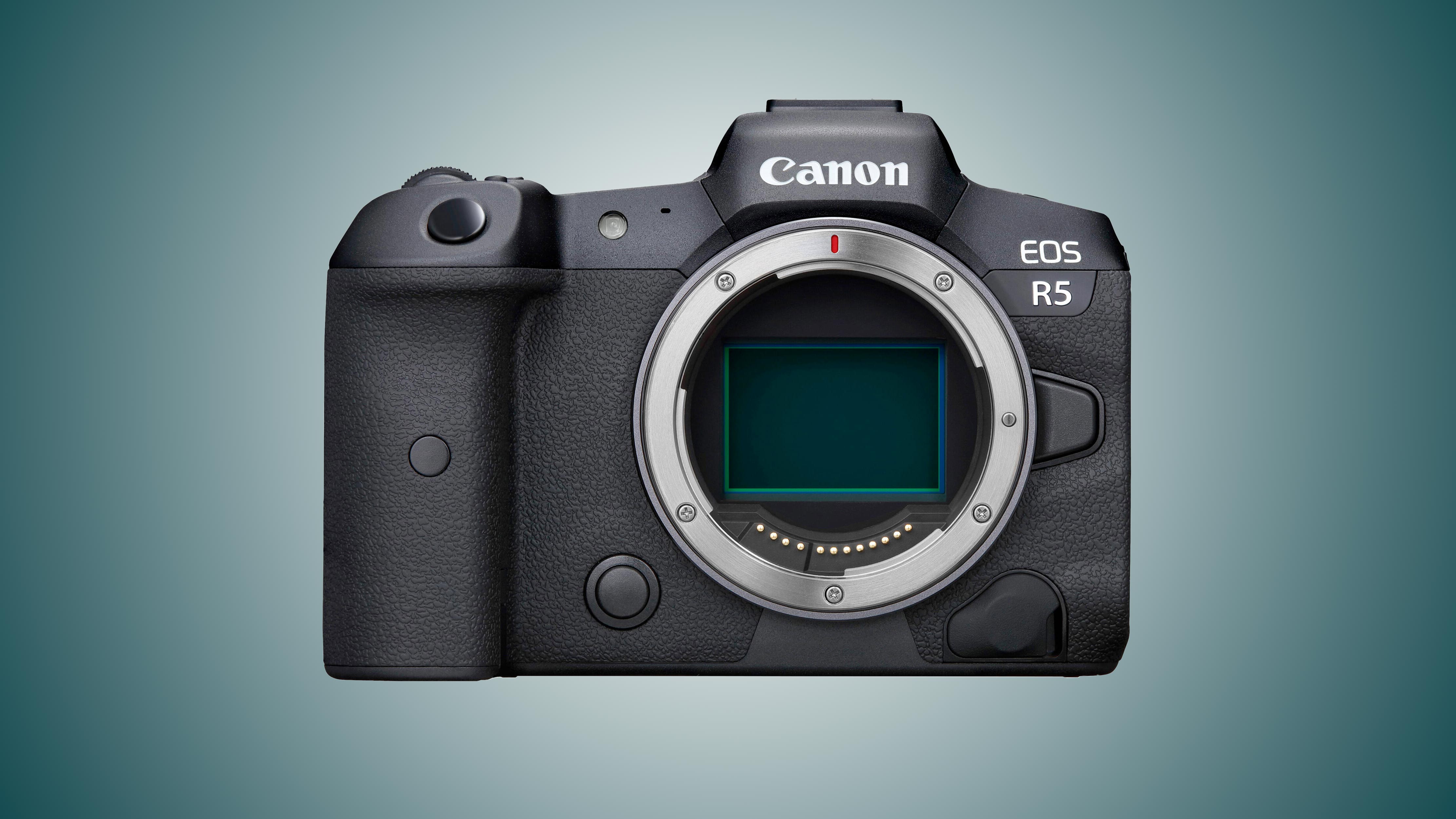
Camera choice 1: pros of DSLR/mirrorless
- The best aspect is you might already own a system of lenses you can use, providing a huge variety of effects, including tilt/shift, fisheye and macro optics.
- One of the best aspects of some mirrorless cameras is that they are almost pocket-sized (look for ones using an APS-C or Micro Four Thirds sensor). You can carry three without breaking a sweat.
- As a still photographer you will be familiar with the design and functionality of similar cameras, allowing easy adjustment to video shooting.
- Many options today have full-frame compatibility offering great depth-of-field control, low light performance and high resolutions at affordable prices (but with less portable lenses).
Camera choice 2: pros of a cinema camera
- Cinema cameras often have built-in NDs. Wide apertures can be challenging to obtain, so integral filters help to quickly manage overexposure.
- Continuous recording produces a lot of heat which larger cinema cameras dissipate with built-in fans or heat sinks, allowing uninterrupted footage across lengthy shoots.
- Smaller cameras don’t have all of the ports required for a complete video and audio system while dedicated video cameras have many.
- Cinema models are highly customizable, allowing the choice of monitor or even the sensor and lens mount to be swapped.
So – which is better?
If you're an enthusiast stills photographer who wants to shoot video from time to time, it is likely that you already possess the fundamentals – check your camera for video features and you might be surprised at the flexibility on offer. Parameters you should consider as essential are the ability to control shutter speed, aperture, and ISO (which we can assume is standard), in addition to the option to adjust frame rate and overall resolution.
Most newly released cameras in 2020 to 2021 will have 4K capability as standard, meaning they can output files with a resolution of around 4,096 by 2,160 pixels (not to be confused with UHD resolution of 3,840 by 2,160 pixels, which is a common monitor or TV display resolution). Models like the Nikon Z9 and Canon EOS R5 can shoot 8K, which offers four times the resolution, offering true cinema quality and ultra-high resolution still frame capture to boot.
Read more
Best cameras for filmmaking
Best 8K cameras
What is 4K
The best camera deals, reviews, product advice, and unmissable photography news, direct to your inbox!

Lauren is a writer, reviewer, and photographer with ten years of experience in the camera industry. She's the former Managing Editor of Digital Camera World, and previously served as Editor of Digital Photographer magazine, Technique editor for PhotoPlus: The Canon Magazine, and Deputy Editor of our sister publication, Digital Camera Magazine. An experienced journalist and freelance photographer, Lauren also has bylines at Tech Radar, Space.com, Canon Europe, PCGamesN, T3, Stuff, and British Airways' in-flight magazine. When she's not testing gear for DCW, she's probably in the kitchen testing yet another new curry recipe or walking in the Cotswolds with her Flat-coated Retriever.
